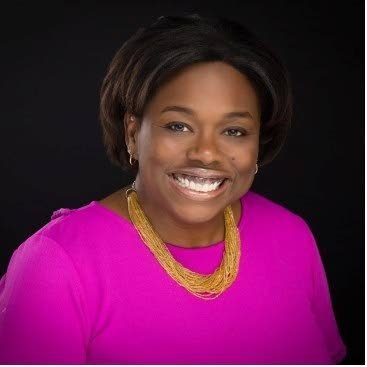Mixing the workforce

ANGELA PIDDUCK
Shelley Clifford Brophy is Google Austin’s software-engineering staffing manager and leader of her team’s charge to hire more diverse job applicants.
She is referred to as An Advocate For Change in an article which recently appeared in the Austin Woman’s Magazine, Texas, USA.
The past student of St Gabriel’s Roman Catholic Primary School in San Fernando and graduate of St Joseph’s Convent, Port of Spain, obtained a scholarship to Yale University, where she graduated with a bachelor’s degree in economics. She then attended Columbia University Law School and practised corporate law in New York for three years, before returning to Yale and pursuing a master’s degree. Born in Queens, New York, the family moved to her parents’ native Trinidad when she was four-years-old. She lived here until she graduated from secondary school. Forty-one-year-old Clifford Brophy is the daughter of Dr Keith and Toni Clifford of Port of Spain. In 2014, Clifford Brophy, realising the need for a change in direction, abruptly quit her job of just one year in the Undergraduate Admissions Office at the University of Texas and applied for a job at Google. She was engaged at the time, and her fiancé, Joel Brophy, who is originally from New York but relocated to Texas, questioned her rash decision.
“I was in the process of rebounding from an existential crisis and decided I was going to learn calligraphy, go to culinary school, plan our wedding and do some admissions consulting on the side to earn money,” Clifford Brophy told Woman’s Crystal Zucek. “That lasted for about a month.”
The position at Google had been filled, but the recruiter invited Clifford Brophy to the company’s Mountain View, California, headquarters anyway, where she was offered a job as staffing-services lead, running a training team in Google’s California office in January 2015. “I was on board but had never run a training team,” she says. “My entire Google career, people offer me opportunities and I say, ‘I have no idea how to do that,’ and then I figure out how to do that.”
Eventually transferring to Google’s Austin office and taking on the software-engineering staffing-manager role, she now heads up a team of 15 employees who help hire all front end and mobile developers for Google.
“People ask me for career advice a lot,” she says. “I tell them to embrace opportunities when they’re offered.”
Zucek writes that Clifford Brophy guides her team to help them bring in job candidates from under-represented racial and ethnic groups, driving the charge to attract and hire more diverse job applicants in Google’s Austin office.
Clifford Brophy is confident the workforce in the male-dominated tech industry will transform as time passes, pointing to some of Google’s efforts to spur young girls to take an interest in the sciences as a step in the right direction.
For instance, Google’s Made with Code programme encourages girls to take an interest in computer-science and technology careers, and the company is also working to integrate computer-science curriculum into elementary and middle-school classes in the Austin Independent School District through its CS First programme.
“When girls enter high school, a lot of them lose interest in the sciences,” says Clifford Brophy, who also serves as a member of the Girl Scouts of Central Texas’ board of directors. “If you can get a girl to stay interested in the sciences throughout high school and to graduate with that interest, you have them for life.”
Clifford Brophy says she wasn’t always the empowered business leader she is today. As a young lawyer, Clifford Brophy says she executed commands, never questioning them.
“Only when I got to business school did I realise you can actually tell people what you want to do. Once I started to find my voice, I cared more about my work. I vocalised what I was interested in and then got the opportunity to do those things.”
At Google, Clifford Brophy uses her leadership role to help empower other women. “You can change and make things happen for you if you identify what you want to do,” she says. “Once you know what you want and the skills you want to develop, you can get help to accomplish that.”

Comments
"Mixing the workforce"